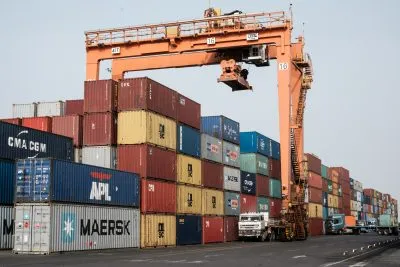Addis Ababa, 27 March 2015 (ECA/AU) – Women’s empowerment is one of the preconditions for achieving the continental development framework, Agenda 2063. Earlier this month, on the eve of the International Women’s Day held on 8th March, the United Nations Economic Commission for Africa (ECA) announced that it would organise a high level event on the central role of women in achieving Agenda 2063, which is the African Union’s call for action to all segments of African society to work together to build a prosperous and united Africa based on shared values and a common destiny.
The event on 28 March, to be held under the theme “Making Agenda 2063 work for African women: What needs to be done?” will be chaired by Dr. Nkosazana Dlamini Zuma, AUC Chairperson, as part of the 8th Joint Annual Meetings of the African Union Specialised Technical Committee on Finance, Monetary Affairs, Economic Planning and Integration and the ECA Conference of African Ministers of Finance, Planning and Economic Development.
The panel, which also includes Ms. Geraldine Fraser-Moleketi, Special Envoy on Gender, AfDB; Dr. Elizabeth Rasekoala, Co-Founder of SET4Women and Dr. Babatunde Osotimehin, Executive Director UNFPA, aims to build consensus on the concrete measures that should be taken to ensure that responds to women’s needs, constraints and priorities. Convening this meeting now is timely as it celebrates the decision by the African Heads of State and Government to make 2015 the “Year of Women’s Empowerment: towards Agenda 2063”. This decision is intended to stress the central role of women in achieving Agenda 2063 and more importantly it emphasises women’s empowerment as one of the preconditions for achieving progress.
Speaking ahead of the panel discussion, Ms Ngone Diop, Chief Gender Equality and Women in Development, at ECA said: “At the event, stakeholders will identify women’s key priorities in line with the outcome and Declaration of the Beijing+20 review and against the Agenda 2063 priorities and plan, reflecting on the right mix of policies and programmes required to tackle the structural and emerging challenges facing women and building a continental consensus on actions to be taken and agreed on next steps in line with the timeframe of the Agenda 2063.”
Reaffirming the call to action to achieve gender equality and women’s and girl’s empowerment by 2030 as spelled out in the African Union’s Agenda 2063, experts have considered passing laws to ensure female representation of at least 50 per cent as provided for in the African Union’s Solemn Declaration on Gender Equality in Africa. This Declaration was adopted in 2004 and followed by the African Union Commission’s Gender Policy, which was adopted in 2009. Other affirmative actions have been passed at the sub regional and country levels, aimed at guaranteeing that women are fairly represented in all public governance structures – elective, appointive and recruited – at management and decision-making levels, in academia and in the private sector.
Some of the key areas designed to make Agenda 2063 work for women including: (i) scaling up efforts to drastically reduce maternal mortality at least by half through the implementation of innovative policies and programmes; (ii) strengthening efforts to completely eliminate early child marriages by criminalising the practice and enforcing the age of marriage of 18 for girls, in accordance with international norms and standards and (iii) criminalising all forms of female genital mutilation, early child and forced marriages, and other harmful traditional practices.
Ways and means to reduce, recognise, and redistribute unpaid care work, which falls disproportionately on women and girls, is being looked into. Ways to nurture entrepreneurship skills and talent development, in particular in the agri-business and extractive industries, including mining, by supporting their primary, secondary and tertiary education are also being explored.
ENDS
Contacts:
IC Publications: Ishara Callan – [email protected] and Audrey Mpunzwana – [email protected]
AUC – Tankou Azaa Esther: Head of Information and Communication Directorate, AUC – [email protected]
ECA: Sophia Denekew, ECA Media Relations, Communications Section, [email protected]
For more information, please go to http://www.ECA.org/cfm2015
About ECA: Established by the Economic and Social Council (ECOSOC) of the United Nations (UN) in 1958 as one of the UN’s five regional commissions, ECA’s mandate is to promote the economic and social development of its member States, foster intra-regional integration, and promote international cooperation for Africa’s development.
Want to continue reading? Subscribe today.
You've read all your free articles for this month! Subscribe now to enjoy full access to our content.
Digital Monthly
£8.00 / month
Receive full unlimited access to our articles, opinions, podcasts and more.
Digital Yearly
£70.00 / year
Our best value offer - save £26 and gain access to all of our digital content for an entire year!
 Sign in with Google
Sign in with Google 



